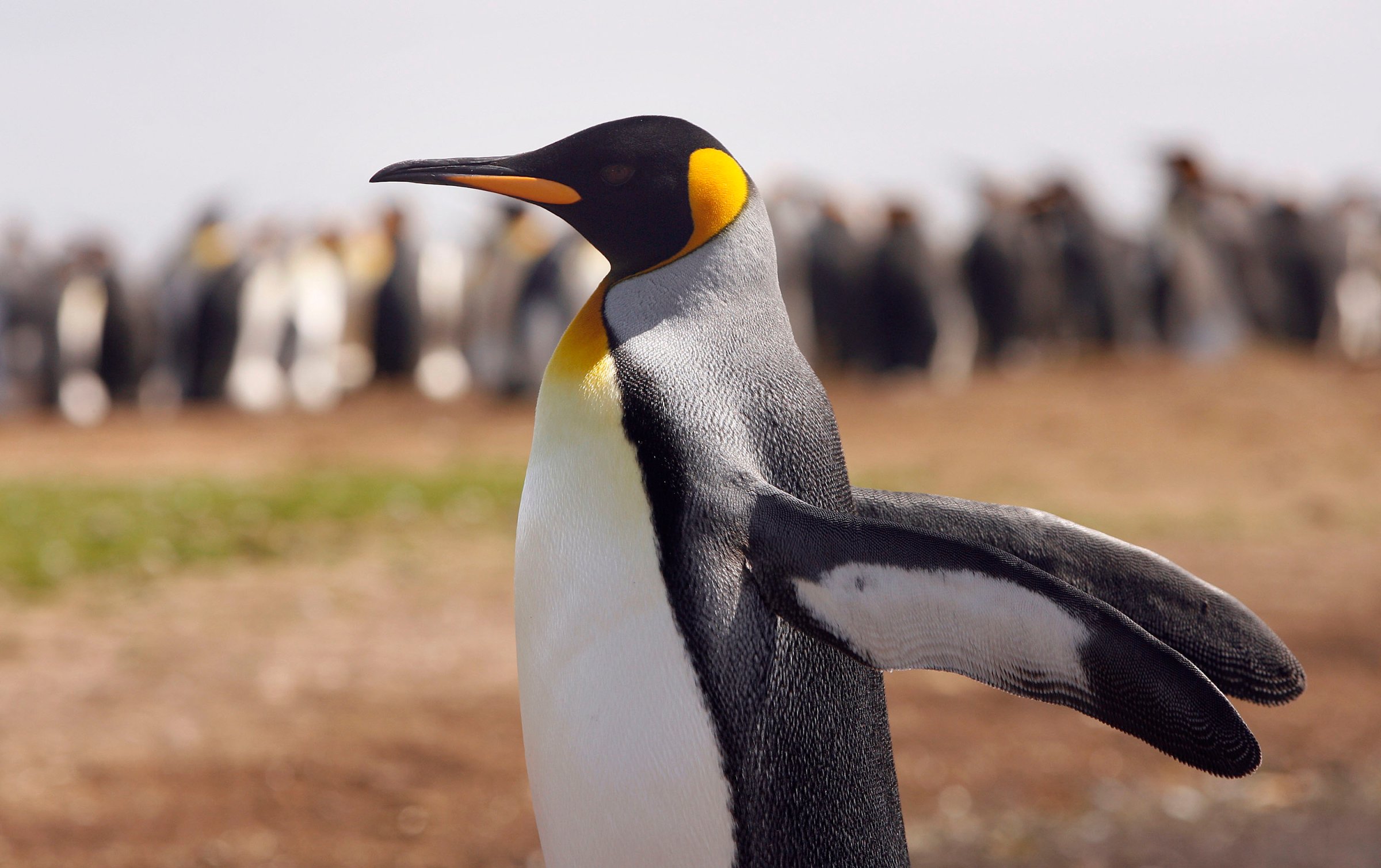
The world’s largest colony of king penguins has mysteriously shrunk by almost 90% since the 1980s, researchers say.
Recent satellite and aerial imagery of France’s remote island of Île aux Cochons reveals the kings population there has all but disappeared, Agence France-Presse reports.
Only 200,000 birds remain in the colony, experts estimated in a new study published in the journal Antarctic Science.
Why the kings’ largest colony has dwindled remains unclear. Scientists have speculated that various environmental factors, diseases or climate change may have contributed to the collapse.
“It is completely unexpected, and particularly significant since this colony represented nearly one third of the king penguins in the world,” said lead author Henri Weimerskirch, an ecologist at the Centre for Biological Studies in Chize, France.
When Weimerskirch set foot on the uninhabited island located between Africa and Antarctica more than three decades ago, it was blanketed in a sea of some 2 million birds, according to AFP.
Weimerskirch said that the entire archipelago around Île aux Cochons will no longer be viable for king penguins by mid-century if climate change models continue on the current trajectory.
Previous research has shown rising greenhouse gases may take a particularly hard toll on the world’s second largest penguin species.
A study published last February and based on climate change models predicted that 70% of the king penguin species would either have to relocate or would vanish before the end of the century.
Island dwellings become unsustainable when food is too distant and the environs are no longer ideal for rearing chicks, the study said.
Weimerskirch also speculated that cholera or overcrowding may have played a role in the declining penguin numbers on Île aux Cochons.
He said scientists hope to find out more conclusively what triggered the decline when they conduct research on the island, likely in 2019.
More Must-Reads From TIME
- The 100 Most Influential People of 2024
- The Revolution of Yulia Navalnaya
- 6 Compliments That Land Every Time
- What's the Deal With the Bitcoin Halving?
- If You're Dating Right Now , You're Brave: Column
- The AI That Could Heal a Divided Internet
- Fallout Is a Brilliant Model for the Future of Video Game Adaptations
- Want Weekly Recs on What to Watch, Read, and More? Sign Up for Worth Your Time
Write to Laignee Barron at Laignee.Barron@time.com